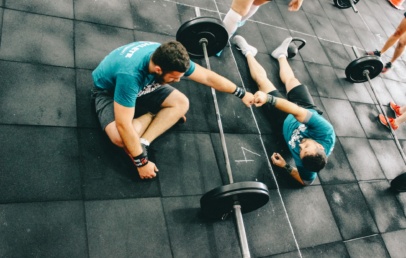
The right foods will give you energy enough for the whole day.
When you’re young, your body feels like a perpetual energy generator. You can wake up at 7 AM, and spend the whole day running around, whooping and hollering. As you get older, though, that boundless energy gets a lot more bounded, which means you need to give your body something to work with if you want to keep going. There’s obvious things like sugar and caffeine, but those are just temporary solutions, and the crash isn’t usually worth the high. What you need is a balanced source of energy that’ll keep you going at a steady clip through the whole day.
Your body’s primary source of energy is carbohydrates. You don’t just want to shove a whole loaf of white bread in your face, though, because refined carbs won’t provide you steady energy. Good, long-lasting carbs come from things like whole grains, legumes, fresh fruit, and vegetables. Slow carbs provide a nice, steady release of blood glucose in your circulatory system, and by extension, energy.
Calories are burned for energy as well, but your body can’t always burn them faster than you consume them. If you eat too many sugary, processed snacks, your body will put more effort into digesting everything than actually running its normal processes. Lay off the junk food, and focus on slow carbs in moderation.
Of course, you also need to make sure you’re getting enough food in you. If you get too preoccupied with counting carbs and calories, you could suffer from malnutrition. Three balanced, square meals a day will give your energy reserves a bigger shot. If you don’t have much of an appetite, try simpler foods that are still dense in nutrients like nuts, yogurt, or peanut butter.
Finally, remember to hydrate. The general guideline for water is 15.5 cups a day for adult men and 11.5 for adult women. Your body needs a steady supply of clean water, especially when it’s warmer out. If you’re properly hydrated, your body can endure more physically demanding tasks for longer periods of time.




